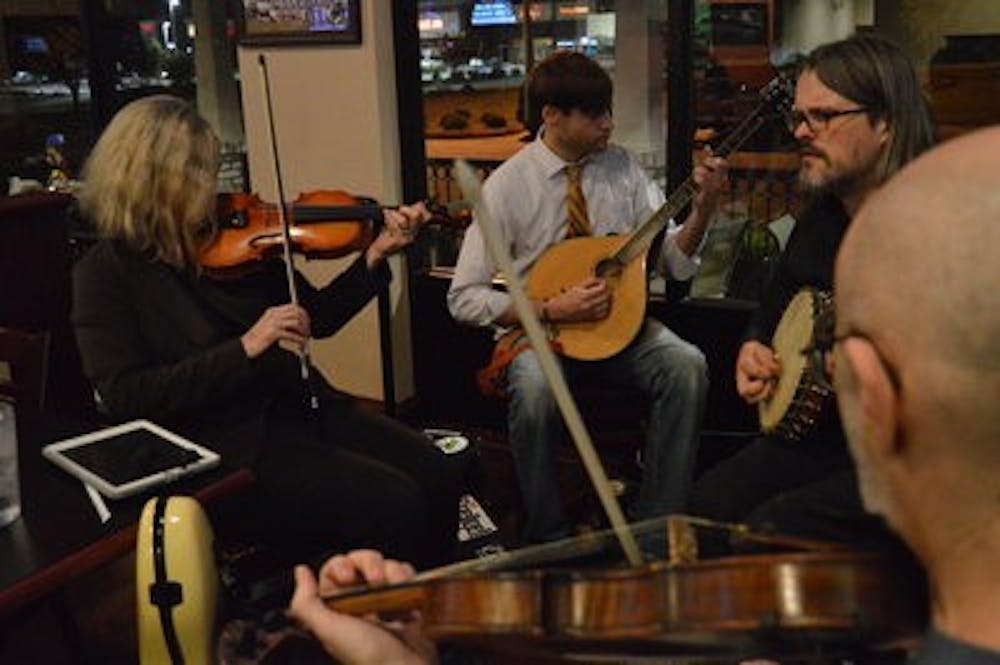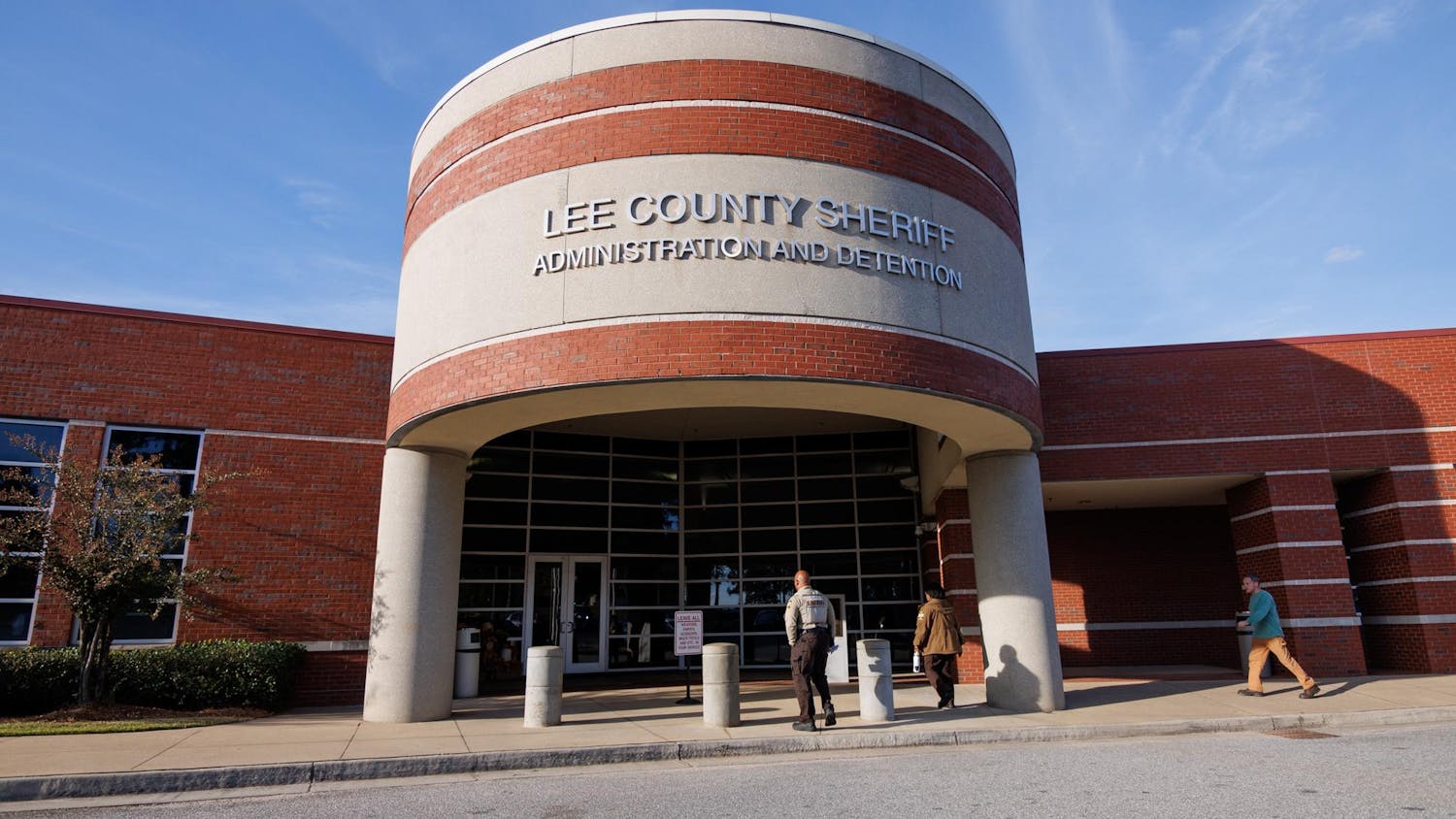In the upper seating section of Beef O'Brady's, four people rumble the seats with their foot tapping and Irish session music as the Atlanta Braves play the Washington Nationals on a projector and surrounding TVs.
There are more seats open than a usual Tuesday, but that doesn't stop Scott Miller, Diane Hite, James Goldstein and Auburn history professor Ralph Kingston from playing traditional Irish session music like they do every Tuesday from 7:30 p.m. to midnight.
The group has been playing together since 2004. The sessions are open to anyone who is interested in playing with them, and the number of people playing varies from three to six.
"We don't necessarily care about the audience, we just want some people to come and play music," Kingston said. "That's the point."
Kingston came to Auburn to teach from Cork County, Ireland. He plays the banjo, the flute and the tin whistle.
Irish music sessions are held around the world, and Hite said they are similar in songs and style from Ireland to Columbus, Ohio, to Auburn.
Miller, of Opelika, began playing Irish music in garages. Eventually, he started playing in groups at the Olde Auburn Ale House. After the Ale House closed, Beef O'Brady's took advantage of one of Auburn's only Irish culture groups.
"It's a great relationship," said manager Russell Woodham. "Being an Irish sports bar, it's nice that we have authentic Irish music playing once a week."
Irish music sessions are different than many informal music gatherings. Sheet music exists, but players don't use it while they play.
"They are dance tunes with a strong beat," Hite said. "Some of the tunes are old or passed on. It's an oral tradition mostly learned by ear, so by and large, we just know the tunes we play."
Kingston plays a few notes on his tin whistle, an instrument he said Irish children learn when they are young because of its cheap cost. Hite and Goldstein then start playing their fiddles and Miller strums his Irish bouzouki, which is similar to a large mandolin.
Kingston's straight shoulder-length hair bobs as all four members' feet pound a beat. Conversations, eating and drinking come second whenever the beginning of a tune is heard.
An Irish music session resembles bluegrass music. The main difference is that bluegrass has improvisations, whereas Irish session music lacks both solos and improvisations, according to Goldstein.
"I've been here many years and never thought there could be an Irish session because there was no real community," Goldstein said.
Beef O'Brady's is helping to support this small piece of Irish culture.
"It makes Auburn more like a college town," Kingston said. "There's always supposed to be something going on in a college town."
Nestled in between a wall and a window in the top corner of the restaurant, the players don't think twice about the small crowd listening at the bar.
They are there to enjoy playing music and each other's company. Authenticity, rare in chain restaurants, is just an unintended consequence.
"We like to cater to all types of college kids and families," Woodham said. "We're a sports bar, but also an Irish sports bar. We try to be as authentic as we can and provide a good atmosphere for anyone who wants to come."
Do you like this story? The Plainsman doesn't accept money from tuition or student fees, and we don't charge a subscription fee. But you can donate to support The Plainsman.





